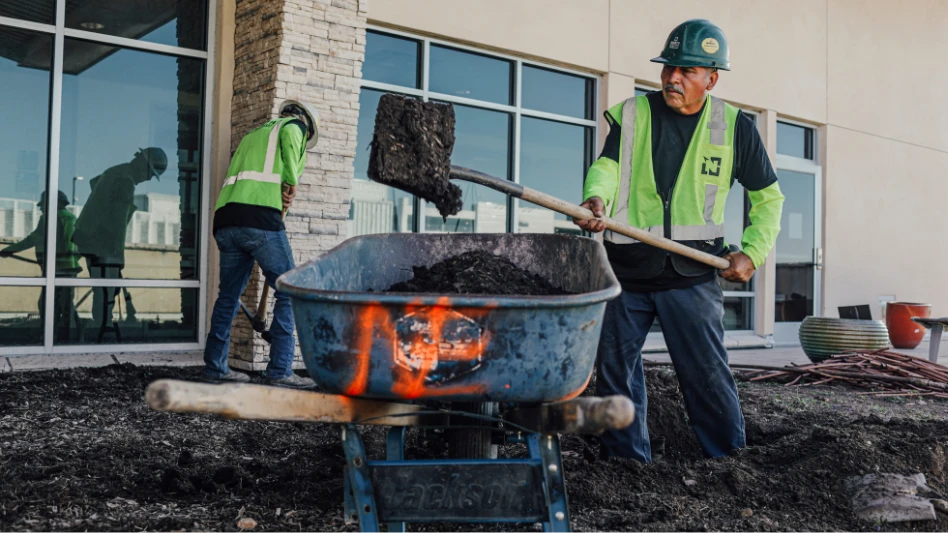Dealing with employees is Paul Wieting’s greatest challenge in running a landscape business. “Is there a better way to learn how to be a boss than the ‘School of Hard Knocks?’” asks the owner of Seagull Lawn Services in Houston.
Over a series of postings to the Lawn & Landscape Message Board, Wieting queries his contemporaries about how they deal with employees. Some landscape contractors agree that their labor pool – from site workers to back-office administrative personnel – gives them an ulcer faster than non-running equipment. How to effectively manage employees is the green industry’s “million-dollar question.” In fact, according to recent Lawn & Landscape research, contractors cited the shortage of quality labor as an issue of concern for overall business success in 2008.
After 20 years of consuming a number of seminars and business books on the topic of human resource management, Chuck Twist, the president of TNT Landscaping in Stillwater, Okla., posts he still hasn’t figured out how to successfully deal with his employees. Twist, however, adds he has come to a few conclusions.
“No. 1, you’ve got to have the right employees,” Twist says. “And I do believe that mutual respect between employee and employer is at the top of the list after having the right employees.”
Todd McCabe, owner of McCabe Landscape Group in Wrightsville Beach, N.C., believes the term “employee” is incorrect and too general of a term. It clouds a business owner’s ability to find resolution to boss and worker relationship issues.
“They are people, not employees,” McCabe says. “And each one is different. You will have to learn how to manage each one and coach them as individuals. The fun part is coaching people on how to coach the people they manage.”
MANAGEMENT KEYS. When something is done incorrectly on a job site, Chad Stern, the owner of Mowing & More in Chevy Chase, Md., holds himself accountable for the mistake, figuring he must not have clearly communicated to his crew the task he wanted completed.
“Having clear objectives and standards to which you can hold people accountable eliminates much of the need to be angry with employees,” Stern says. “There is no such thing as a perfect employee. Until there is such a thing, I will not expect employees to be perfect. However, I will expect them to be responsible, productive, quality-oriented and safe.”
In addition, frontline managers must possess patience, compassion and fairness, posts Andrew Aksar, president of Outdoor Finishes in Walkersville, Md.
“They’re traits almost identical to a personal relationship,” he says, adding business owners often fail to realize this point.
Wieting posts he establishes reasonable quotas, standards and rules for his employees that he believes manage his people more effectively.
“If you perform within those parameters, great,” Wieting says. “If not, we need to talk. And if that doesn’t help, then I have to take steps to protect my company.”
Some contractors post that continuing education, especially to hone people skills, is crucial to managing a labor force. “You’ve got to have a canvas or you can’t paint,” Twist says.
COMPENSATION CONUNDRUM. It’s difficult to find and retain skilled workers who will do landscape labor for $8 to $10 an hour, post many contractors. Others added they are resigned to the fact that landscape laborers with real talent and skill eventually realize they should be employed for themselves, rather than work for someone else.
“And therein lies the tensions between employer and employee,” Twist says. “Most of us employers have already been in the other guy’s shoes. Most of us started out as employees, poor and often thinking bitterly of those above us.”
Outside of starting your own landscape business, working as a laborer in this industry is a dead-end job, posts Sal Mortilla, president of Landscape Unlimited in Long Island, N.Y.
“With rare exception, very few landscape business owners possess a ladder for laborers to climb that can provide the American Dream that these, or at least some of these, people are looking for,” Mortilla says. “I have no ladder for anyone to climb, just the promise of pure labor as long as they want it or can do it. That’s the nature of this business.”
Get curated news on YOUR industry.
Enter your email to receive our newsletters.
Explore the October 2007 Issue
Check out more from this issue and find your next story to read.
Latest from Lawn & Landscape
- Ever-changing landscape of SEO
- Fleetio acquires Auto Integrate, raises $450M in Series D funding
- Davey Tree expands in St. Paul, promotes Ostlie to district manager
- Schill Grounds Management taps 3 for senior leadership roles
- HD Hyundai Construction Equipment North America adds to wheeled excavator lineup
- High maintenance
- From Design to Proposal: Estimating and Rendering Support Services
- PERC adds Joel Stutheit as senior manager of business development





